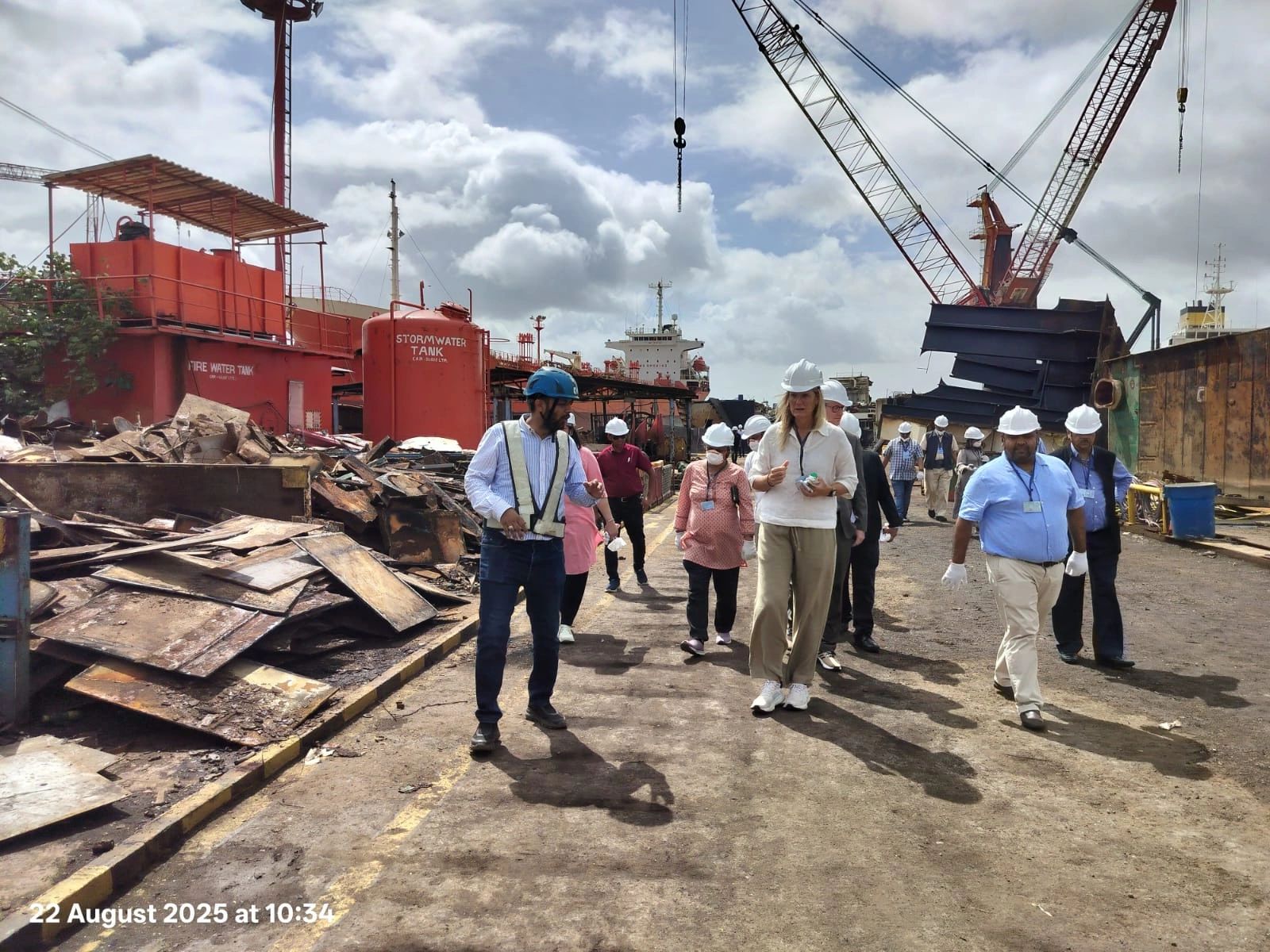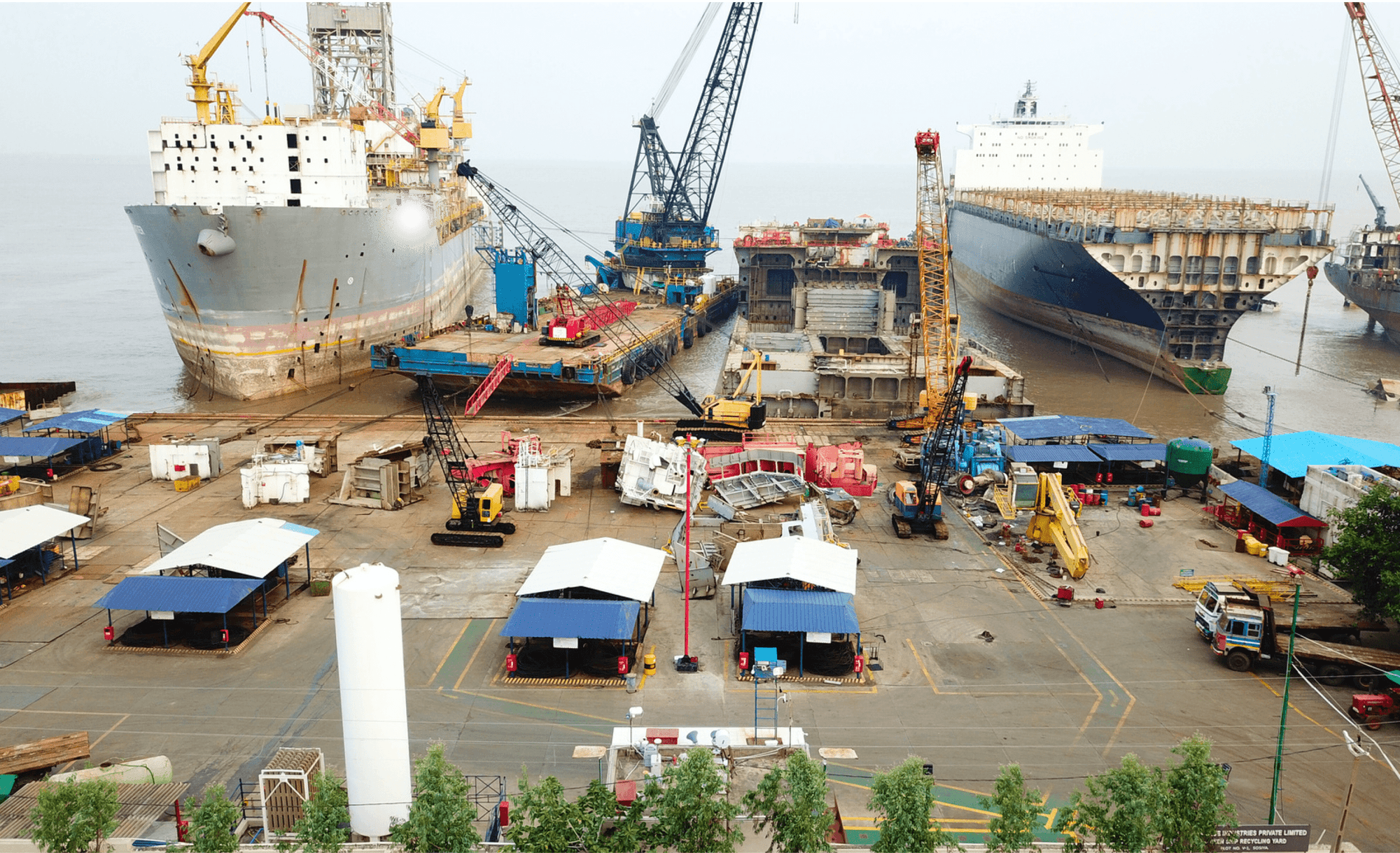Ship Recycling: Slight increase in demand in Indian ship recycling market
This report summarizes key developments in the global ship recycling industry for the week ending March 24th, 2024. It covers market trends in India, Bangladesh, Pakistan, and Turkiye, along with insights into recent events impacting the broader maritime sector.
Market Updates by Region
-
India: The Indian ship recycling market remained stable with a slight increase in demand this week. Anticipation for further improvement is high for mid-April. Notably, India’s steel trade deficit has decreased, indicating a positive development for the domestic steel industry.
-
Bangladesh: Bangladesh’s ship recycling market saw a modest uptick. This can be attributed to a favourable exchange rate between the Bangladeshi Taka and the US Dollar, alongside rising vessel booking prices. However, the upcoming Eid holiday may cause delays in deliveries next week. Recyclers are currently showing a preference for larger, lightweight vessels and ship plates.
-
Pakistan: The Pakistani market continued to face challenges related to Letter of Credit (LC) issues, leading to delays in vessel beaching operations. The Pakistan Association of Large Steel Producers (PALSP) raised concerns regarding smuggling and other illegal activities impacting the steel industry, which is already struggling due to economic factors.
-
Turkiye: The Turkish ship recycling market remained stable this week, with no significant deviations from previous trends. The country’s GDP growth forecast for 2024 has been revised upwards to 3%, reflecting positive economic conditions.
Industry-Wide Impact of the Baltimore Incident
The recent accident involving the cargo ship Dali and the collapse of the Francis Scott Key Bridge in Baltimore serves as a stark reminder of the need for stricter regulations and improved safety measures in the maritime industry. This incident is expected to lead to increased efforts to enhance safety protocols, strengthen regulations, and bolster crew training to prevent similar accidents in the future.
Potential Closure Threatens Global Oil Refining Capacity
A recent analysis by an energy consultancy suggests that a significant portion of the world’s oil refining capacity could face closure due to declining gasoline margins and growing pressure to reduce carbon emissions. Over one-fifth of global capacity, particularly concentrated in Europe and China, is deemed at risk. Factors like net cash margins, carbon emission costs, and environmental investment will influence which refineries are most vulnerable.
Important Note: This report is for informational purposes only and does not constitute financial advice.
In the ship recycling industry, India’s market maintained consistency with the previous week, noting a slight increase in demand. Anticipation for improvement is on the horizon for mid-April. Bangladesh experienced a modest uptick in its local market, attributed to a favourable exchange rate between the Bangladeshi Taka and the US Dollar, alongside an increase in vessel booking prices due to sellers’ reluctance to lower rates. However, the Eid observance next week may cause delays. Pakistan’s market trends mirrored those of the prior week, with ongoing challenges related to LC issues leading to delays in operations. Similarly, Turkiye’s market showed steady performance without notable deviations from previous weeks.

The Baltimore incident, with the cargo ship Dali causing the collapse of the Francis Scott Key Bridge, is a stark reminder for the maritime industry. The disaster underscores the need for stricter regulations and improved safety measures. Expectations are for intensified efforts to enhance safety protocols, strengthen regulations, and bolster crew training. This heightened awareness will drive stakeholders to implement more rigorous safety standards industry-wide, aiming to prevent similar accidents in the future.
A significant portion of the world’s oil-refining capacity faces potential closure, according to a recent analysis conducted by an energy consultancy. As gasoline margins decline and pressure to mitigate carbon emissions intensifies, over one-fifth of global capacity is deemed at risk. The analysis highlights Europe and China as regions with the highest concentration of vulnerable sites, collectively endangering approximately 3.9 million barrels per day (bpd) of refining capacity. Factors contributing to this risk include net cash margins, carbon emission costs, ownership structure, environmental investment, and strategic refinery value.
Beaching Dates (for informational purposes only)
- India: Mar 29-30, Apr 6-13, Apr 23-29
- Bangladesh: Apr 8-11, Apr 23-26, May 5-13
- Pakistan: Throughout the month
- Turkiye: Throughout the month
Author: shipping inbox
shipping and maritime related web portal









